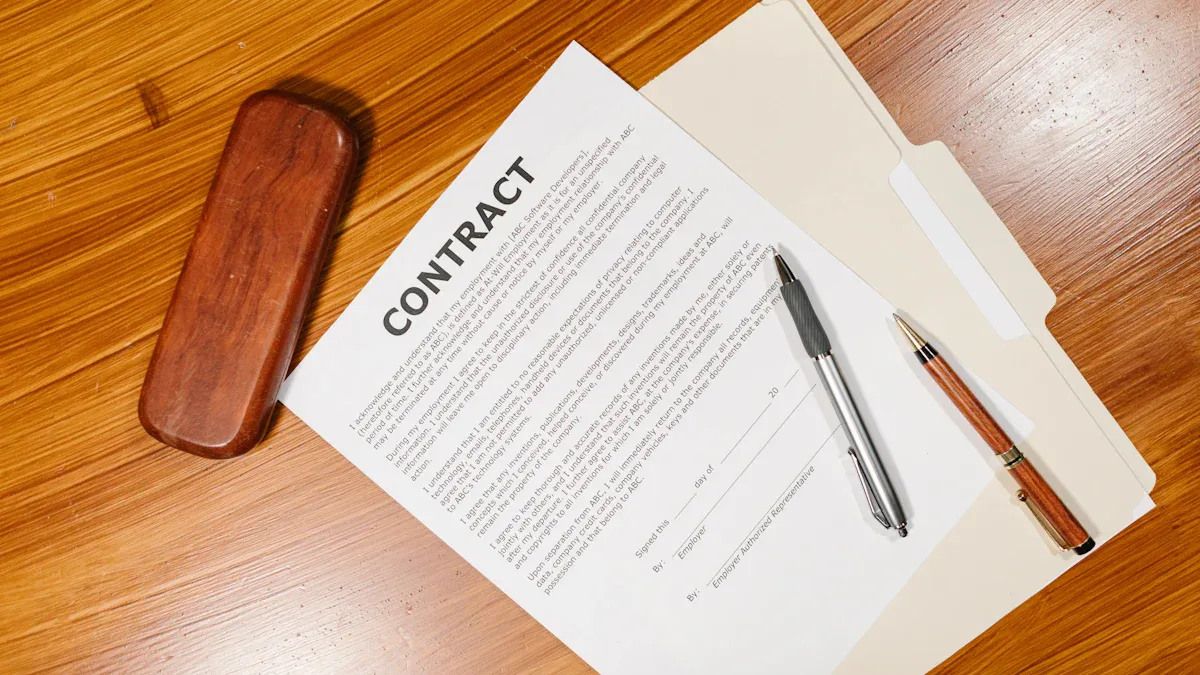Image Source: pexels
Finding a good personal injury lawyer can change everything, especially when you understand ‘How to Choose the Best Personal Injury Lawyer: Key Factors Explained.’ You need someone who cares, listens, and defends your rights. A reliable lawyer with a proven track record of success in cases is important. Look for kindness, hard work, and clear communication. These traits help you feel safe and sure during your case.
Key Takeaways
- Pick a lawyer who has handled similar cases before. Their experience can help your case go smoother and stress-free.
- Find a lawyer with good reviews and a strong reputation. This will make you feel confident they can handle your case well.
- Ask simple questions about costs and how they communicate. This helps you choose someone who fits your needs and keeps you updated.
Why Picking the Right Personal Injury Lawyer is Important
How It Affects Your Case
The lawyer you pick can change your case results. Experienced lawyers know personal injury laws and handle legal steps well. They figure out damages and deal with insurance companies for fair pay. Without their help, you might get less money or miss out. A good lawyer also makes the process less stressful, so you can heal.
Picking the right lawyer isn’t just about winning. It’s about getting the help and fairness you need.
Why a Skilled Lawyer Helps
Hiring a skilled lawyer is better than doing it alone. Lawyers know state laws and how courts work, so they do things right. They handle papers, meet deadlines, and talk to insurance companies for you. They stay calm and help you make smart choices. Most times, they get you more money than if you did it yourself.
Doing it alone can lead to big mistakes, like asking for too little or filing wrong forms. A good lawyer avoids these problems, giving you peace and better chances of winning.
Mistakes to Avoid
Some people choose lawyers who don’t know personal injury law. Others forget to ask about their success in past cases. Ignoring how they communicate or their reputation can cause problems. Picking a lawyer with too many cases might mean less attention for you.
To avoid these mistakes, use free consultations and ask smart questions. Choose lawyers who focus on personal injury cases and have won before. This way, you’ll find someone who fits your needs and goals.
Key Factors to Think About When Picking a Lawyer
Experience and Focus in Personal Injury Cases
Choose a lawyer who knows personal injury law well. These lawyers understand tricky cases and handle them easily. They check accidents, find who’s at fault, and talk to insurance companies to get you more money. Experts in this area often work with doctors or investigators to make your case stronger.
Find lawyers who join groups like the American Association for Justice (AAJ). Being part of these shows they care about personal injury law. Lawyers who teach or write about insurance law are respected and know their stuff.
Reputation and Reviews from Clients
A lawyer’s good name can help your case go smoothly. Lawyers known for honesty and skill often get better deals from insurance companies. Look at online reviews and ratings. Positive reviews help you trust them and find them faster.
Ask for stories from past clients. These stories show how the lawyer solved problems and got results, giving you confidence.
Clear Communication and Quick Replies
Good communication builds trust. A great lawyer listens to you, explains things simply, and keeps you updated. Look for signs like clear answers, kindness, and understanding. Lawyers who change how they talk to match your needs show they care about you.
Fees and Honest Pricing
Know how much a lawyer charges before hiring them. Most personal injury lawyers take a part of your settlement instead of charging upfront. This helps if you can’t pay right away. Always ask about extra costs and make sure their pricing is clear.
Trust and Comfort
Pick a lawyer you feel good about. During meetings, notice how they treat you. Do they listen carefully? Do they seem interested in helping you? A lawyer who respects you and values your thoughts makes the process easier and less stressful.
Questions to Ask During a Consultation
Checking the Lawyer’s Experience and Success
When meeting a lawyer, ask smart questions to learn about them. Focus on their work with cases like yours and how often they win. Here are some simple questions to ask:
- Have you handled cases like mine before?
- How often do you win cases like this?
- What could happen with my case?
- How do you usually handle cases?
- Who will work on my case with you?
These questions help you see if the lawyer is skilled. A lawyer with good results can make you feel more ready and confident.
Learning About Fees and Costs
It’s important to know how much the lawyer charges. Most personal injury lawyers only get paid if you win. Still, ask about any extra costs. These questions can help you understand their fees:
- How much do you charge, and how do you bill?
- Are there any upfront or hidden fees?
- How will I pay for case-related expenses?
Clear answers to these questions will help you avoid surprises later on.
Judging Communication and Case Updates
Good communication makes working with a lawyer easier. During your meeting, notice how they talk to you. Ask about how they stay in touch and share updates. Look for signs they listen and explain things well. For example:
- Do they explain legal terms in simple words?
- Do they seem to care about your case?
A lawyer who communicates clearly will keep you informed and make the process less stressful.
Red Flags to Watch for When Choosing a Lawyer
Not Enough Experience
Picking a lawyer without the right skills can harm your case. Personal injury cases need special knowledge and practice. A lawyer who hasn’t worked on similar cases might struggle. You need someone who knows how to check accidents, talk to insurance companies, and argue well in court.
To check a lawyer’s experience, try these steps:
- Ask for References: Talk to past clients about the lawyer’s work and communication.
- Have a Consultation: Ask about their experience with cases like yours and their success.
These steps will help you feel sure about your choice and avoid hiring the wrong person.
Bad Communication or Hard to Reach
A lawyer who doesn’t talk clearly can make you feel confused. You need someone who listens, answers questions, and keeps you updated. If they take too long to reply or seem uninterested, it’s a bad sign.
Notice how they treat you. Do they explain things simply? Do they care about your case? A lawyer who communicates well will keep you informed and make the process easier.
False Promises or Guarantees
Be careful of lawyers who promise certain results. No one can know exactly how your case will end. Personal injury cases depend on proof, witnesses, and talks with others. A good lawyer will be honest about your case and not give false hope.
Choose someone who sets fair expectations and works hard on your case. This shows they are honest and want the best result for you.
Picking the right personal injury lawyer can change everything. Find one with experience, a good name, and clear answers. A smart lawyer helps you get more money and stay calm. They make sure nothing important is forgotten. Trust your gut and ask smart questions. This choice affects your path to fairness and healing.
The best lawyer is your greatest helper.
FAQ
How can I tell if a personal injury lawyer is good for me?
Find someone with experience and good communication skills. During meetings, ask if they’ve worked on cases like yours. Make sure they understand your needs and have had success before.
What if I can’t pay a lawyer upfront?
Most personal injury lawyers only get paid if you win. This is called working on contingency. Always ask about any extra or hidden costs when you meet them.
What should I take to my first meeting with a lawyer?
Bring details about the accident, your medical records, and insurance papers. These will help the lawyer understand your case and give you the best advice.




